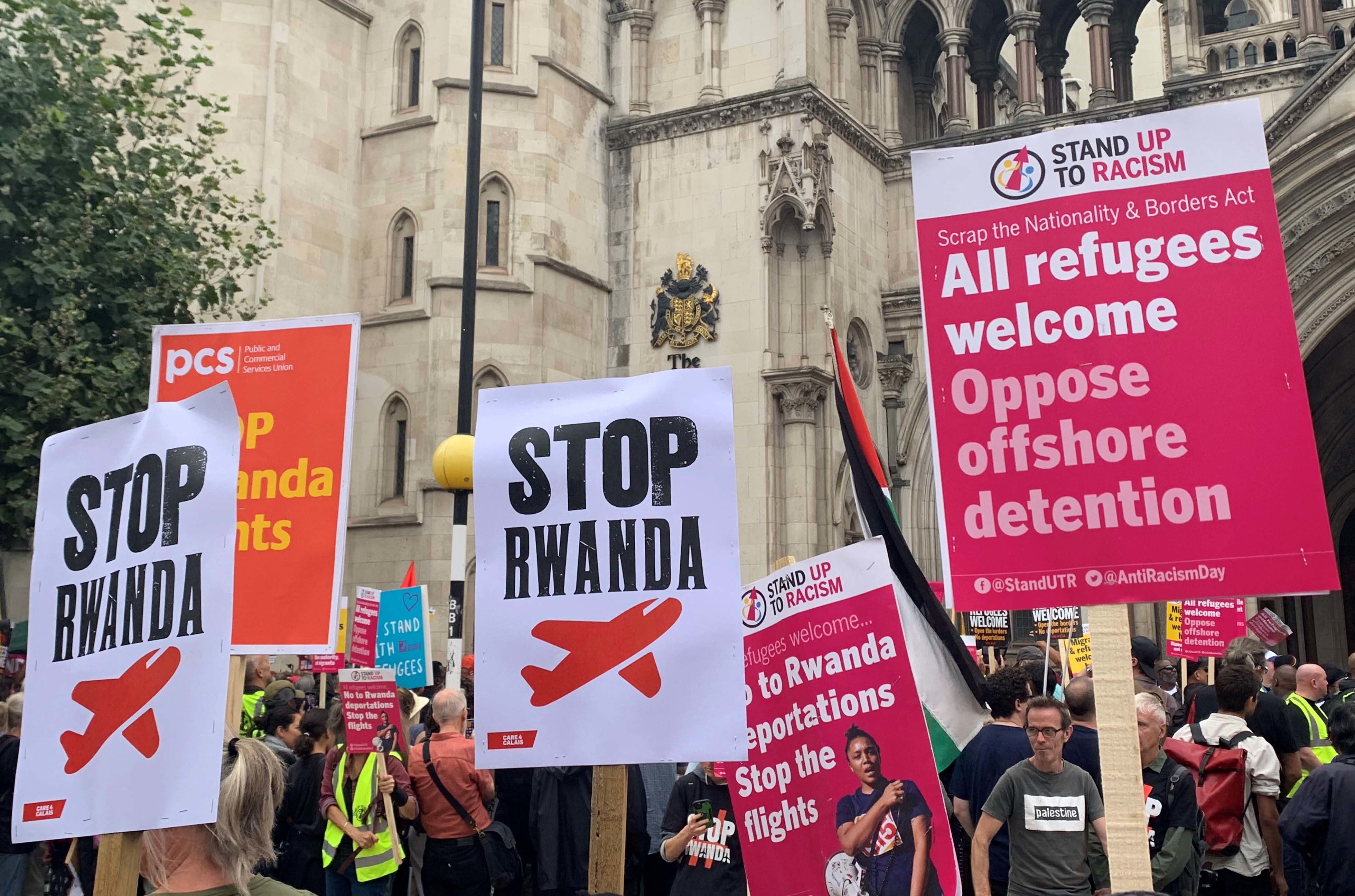‘Not a punishment’ for asylum seekers to be sent to Rwanda, government tells High Court
UN says scheme ‘unlawfully penalises’ asylum seekers but Home Office lawyers deny breaking Refugee Convention

Being sent to Rwanda is “not a punishment” for asylum seekers, lawyers for the Home Office have told the High Court.
Representatives of the home secretary said that although Priti Patel told parliament the policy intended to “deter illegal and dangerous” small boat crossings in the English Channel, and target “those with no right to be in the UK”, it was not a criminal penalty.
Lord Pannick QC told a hearing on Wednesday: “It is not a penalty contrary to [the Refugee Convention] to remove to safe third country.”
The convention, which is binding in international law, says countries cannot “impose penalties … on refugees who, coming directly from a territory where their life or freedom was threatened, enter their territory without authorisation”.
The UN Refugee Agency (UNHCR) previously told the High Court that the Rwanda deal amounted to an unlawful penalty and broke the convention.
But Lord Pannick argued that the prohibition only covered “criminal penalties”, and that the asylum seekers bringing the legal challenge did not “come directly” because they had spent time in other countries where they could have claimed asylum.
The barrister did not dispute that the policy was “designed to deter” small boat crossings, but told the court that did not make it a “penalty”.
Written submissions from the Home Office legal team added: “Relocation to a safe third country is not a criminal penalty and is not imposed as a punishment.
“The mere existence of a deterrent effect, or even purpose, does not make such relocation into a penalty.”
The UNHCR disputed the government’s argument, calling it “misconceived” and saying that giving a category of asylum seekers “less favourable” treatment and “serious risks” in Rwanda was an unlawful penalty.
Lawyers representing the authority also told the High Court that Rwanda was “not a safe third country” for the purpose of transferring asylum seekers from the UK and the agreement must not be implemented.
Barrister Laura Dubinsky QC told a hearing on Tuesday that the body was “calling for an embargo and saying this should not proceed”.
The Home Office’s submissions argued that “Rwanda will, in general, meet the criteria of a safe third country” but that asylum seekers’ individual circumstances would be considered.
The High Court previously heard that Rwanda was “ruled out” of consideration for an asylum deal by the Foreign Office, but put back on the list of potentials after “particular interest” was shown by Boris Johnson and Priti Patel.
Government documents said officials had “advised No 10 against engagement” and assessed that “politically driven human rights violations (torture, killings, kidnap) are common”.
The UNHCR said the country had reneged on assurances given to Israel in a previous asylum deal, taking migrants over the border into Uganda instead of housing them in hotels and processing their claims.
But the Home Office said there were reputational and “financial incentives for the government of Rwanda to comply with the assurances” given to Britain. The hearing, due to last for five days, continues.



Join our commenting forum
Join thought-provoking conversations, follow other Independent readers and see their replies
Comments